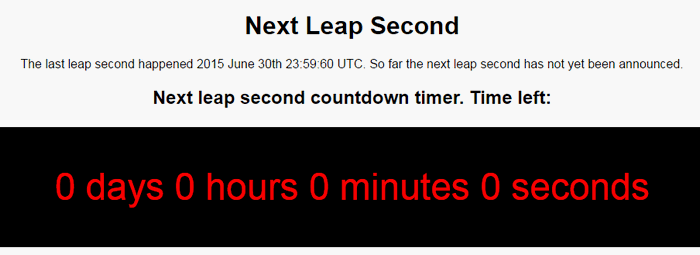Unlike leap days that are added to the calendar in a highly predictable manner, leap seconds are added when the International Earth Rotation and Reference Systems Service determines that one is needed. Since 1972 26 leap seconds have found their way into our calendars, some of those on June 30, and some on December 31. But it's not advisable to get into the habit of expecting these fleeting additions. At present it's not clear that more leap seconds are on the horizon. From a glance at http://nextleapsecond.com we learn:

And it's not only that the date of the next leap second hasn't yet been determined or announced. It seems that many scientists simply want to do away with them. A Proposal to Abolish Leap Seconds is examined in depth on the Wikipedia entry devoted to leap seconds. The possibility that we may no longer have leap seconds doesn't mean that there's no longer a need to synchronize our clocks with the earth's rotation. There is. But apparently there are scientists who think it would make more sense to occasionally have a leap hour in order to get things back in sync. The United States Naval Observatory's Chief Scientist for Time Services apparently supports this change, and I found his argument, as reported by Wikipedia, particularly interesting: